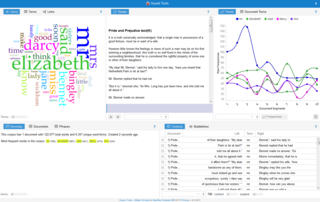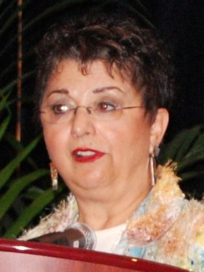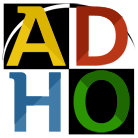Related Research Articles
In library and archival science, digital preservation is a formal endeavor to ensure that digital information of continuing value remains accessible and usable. It involves planning, resource allocation, and application of preservation methods and technologies, and it combines policies, strategies and actions to ensure access to reformatted and "born-digital" content, regardless of the challenges of media failure and technological change. The goal of digital preservation is the accurate rendering of authenticated content over time. The Association for Library Collections and Technical Services Preservation and Reformatting Section of the American Library Association, defined digital preservation as combination of "policies, strategies and actions that ensure access to digital content over time." According to the Harrod's Librarian Glossary, digital preservation is the method of keeping digital material alive so that they remain usable as technological advances render original hardware and software specification obsolete.
Library collection development is the process of building the library materials to meet the information needs of the users in a timely and economical manner using information resources locally held, as well as from other organizations.

Digital humanities (DH) is an area of scholarly activity at the intersection of computing or digital technologies and the disciplines of the humanities. It includes the systematic use of digital resources in the humanities, as well as the analysis of their application. DH can be defined as new ways of doing scholarship that involve collaborative, transdisciplinary, and computationally engaged research, teaching, and publishing. It brings digital tools and methods to the study of the humanities with the recognition that the printed word is no longer the main medium for knowledge production and distribution.
Oxford Text Archive (OTA) is an archive of electronic texts and other literary and language resources which have been created, collected and distributed for the purpose of research into literary and linguistic topics at the University of Oxford, England.
The Prosopography of Anglo-Saxon England (PASE) is a database and associated website that aims to collate everything that was written in contemporary records about anyone who lived in Anglo-Saxon England, in a prosopography. The PASE online database presents details of the lives of every recorded individual who lived in, or was closely connected with, Anglo-Saxon England from 597 to 1087, with specific citations to each primary source describing each factoid.
The Humanities Advanced Technology and Information Institute (HATII) was a research and teaching institute at the University of Glasgow in Scotland. It was established in 1997 with Professor Seamus Ross as Founding Director until 2009. HATII led research in archival and library science and in information/knowledge management. Research strengths were in the areas of humanities computing, digitisation, digital curation and preservation, and archives and records management.

The Digital Classicist is a community of those interested in the application of digital humanities to the field of classics and to ancient world studies more generally. The project claims the twin aims of bringing together scholars and students with an interest in computing and the ancient world, and disseminating advice and experience to the classics discipline at large. The Digital Classicist was founded in 2005 as a collaborative project based at King's College London and the University of Kentucky, with editors and advisors from the classics discipline at large.
The term e-Research refers to the use of information technology to support existing and new forms of research. This extends cyber-infrastructure practices established in STEM fields such as e-Science to cover other all research areas, including HASS fields such as digital humanities.

Camila Alire is an American Librarian and was President of the American Library Association from 2009–2010. She was President of REFORMA, National Association to Promote Library and Information Services to Latinos and the Spanish-speaking, in 1993-1994.

The Alliance of Digital Humanities Organizations (ADHO) is a digital humanities umbrella organization formed in 2005 to coordinate the activities of several regional DH organizations, referred to as constituent organizations. ADHO's constituent organizations are the European Association for Digital Humanities (EADH), the Association for Computers and the Humanities (ACH), the Canadian Society for Digital Humanities (CSDH/SCHN), centerNet, the Australasian Association for Digital Humanities (aaDH), the Japanese Association for Digital Humanities (JADH), Humanistica, the french-speaking association for Digital Humanities, and the Taiwanese Association for Digital Humanities (TADH), Digital Humanities Alliance for research and teaching innovations (DHARTI)from india etc.
Seamus Ross is a digital humanities and digital curation academic and researcher based in Canada.
The Maryland Institute for Technology in the Humanities (MITH) is an internationally recognized, rapidly growing research center that is helping to transform the humanities in an era of new media and global information. It counts among the "most visible" in the field. A collaboration among the University of Maryland College of Arts and Humanities, Libraries, and Office of Information Technology, MITH cultivates innovative research agendas clustered around digital tools, text mining and visualization, and the creation and preservation of electronic literature, digital games, virtual worlds.
Digital Scholarship in the Humanities is a peer-reviewed academic journal of the European Association for Digital Humanities that covers all aspects of computing and information technology applied to Arts and Humanities research. It is one of the main journals in the field of Digital Humanities. The journal is published by Oxford University Press. The journal was formerly known as Literary and Linguistic Computing, but was renamed to emphasise a broadening in its subject focus beyond literary studies.

The European Association for Digital Humanities (EADH), formerly known as the Association for Literary and Linguistic Computing (ALLC), is a digital humanities organisation founded in London in 1973. Its purpose is to promote the advancement of education in the digital humanities through the development and use of computational methods in research and teaching in the Humanities and related disciplines, especially literary and linguistic computing. In 2005, the Association joined the Alliance of Digital Humanities Organizations (ADHO).
The Association for Computers and the Humanities (ACH) is the primary international professional society for digital humanities. ACH was founded in 1978. According to the official website, the organization "support[s] and disseminate[s] research and cultivate[s] a vibrant professional community through conferences, publications, and outreach activities." ACH is based in the United States, and has an international membership. ACH is a founding member of the Alliance of Digital Humanities Organizations (ADHO), a co-originator of the Text Encoding Initiative, and a co-sponsor of an annual conference.
Susan Hockey is an Emeritus Professor of Library and Information Studies at University College London. She has written about the history of digital humanities, the development of text analysis applications, electronic textual mark-up, teaching computing in the humanities, and the role of libraries in managing digital resources. In 2014, the University College of London created a Digital Humanities lecture series in her honour.
Urban informatics refers to the study of people creating, applying and using information and communication technology and data in the context of cities and urban environments. Various definitions are available, some provided in the Definitions section. Urban informatics is a trans-disciplinary field of research and practice that draws on three broad domains: people, place and technology.
Lou Burnard is an internationally recognised expert in digital humanities, particularly in the area of text encoding and digital libraries. He was assistant director of Oxford University Computing Services (OUCS) from 2001 to September 2010 where he officially retired from OUCS. Prior to that, he was manager of the Humanities Computing Unit at OUCS for five years. He has worked in ICT support for research in the humanities since the 1990s. He was one of the founding editors of the Text Encoding Initiative (TEI) and continues to play an active part in its maintenance and development, as a consultant to the TEI Technical Council and as an elected TEI board member. He has played a key role in the establishment of many other key activities and initiatives in this area, such as the UK Arts and Humanities Data Service, and the British National Corpus and has published and lectured widely. Since 2008 he has also worked as a Member of the Conseil Scientifique for the CNRS-funded "Adonis" TGE.
Harold Short is Emeritus Professor of King’s College London. He founded and directed the Centre for Computing in the Humanities until his retirement (2010). He was involved in the development with Willard McCarty of the world's first PhD programme in Digital Humanities (2005), and three MA programmes: Digital Humanities, Digital Culture and Society, and Digital Asset Management.
References
- ↑ DDH web-site: http://www.kcl.ac.uk/schools/humanities/cch
- ↑ Literary and Linguistic Computing is an international journal which publishes material on all aspects of computing and information technology applied to literature and language research and teaching.
- ↑ Digital Futures: Strategies for the Information Age